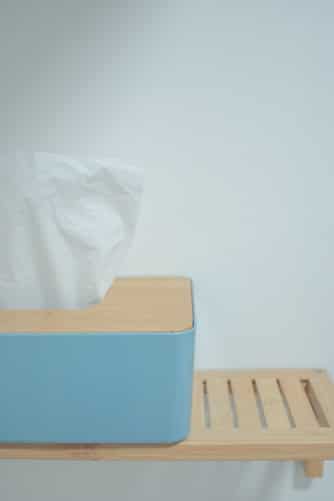Nosebleeds are extremely common, affecting about 60 percent of people at some point in their lives. However, they are even more common in children between ages two and 10 and older adults between ages 50 and 80. While nosebleeds can be alarming, only about 10% of cases are serious enough to warrant medical treatment.
What to Do During a Nosebleed
Usually, nosebleeds can be treated at home. If you or your child gets a nosebleed, follow the tips below.
- Sit upright and lean slightly forward. If you have a child, assure them that everything is fine and nothing serious is happening.
- While you may think it’s best to lean or lie back to stop the bleeding, this can result in swallowing the blood, leading to coughing or vomiting.
- Gently pinch the tip of the nose between two fingers using a tissue or clean towel while breathing through the mouth.
- Continue to apply pressure for ten minutes, even if the bleeding stops before that.
- Avoid packing the nose with gauze or tissue, and don’t spray anything into the nostrils.
When to See a Doctor
You should talk to a doctor about nosebleeds if they…
- Happen frequently
- Deviate from a familiar pattern
- Occur alongside chronic congestion
- Are accompanied by other signs of easy bleeding or bruising
- Begin after starting a new medication
- Regularly require a trip to urgent care or the emergency room
Rarely, nosebleeds require urgent medical attention. Visit a hospital if the nosebleed…
- Continues for more than 20 minutes with applied pressure
- Occurs following a head injury or blow to the face (especially if there is visible trauma)
- Is accompanied by an intense headache or a fever
- Causes too much blood loss (signs include looking pale, having little energy, feeling dizzy or passing out)
- Results in coughing or vomiting up blood
You should also contact a doctor if a nosebleed begins and you or your child has a bleeding disorder or is taking blood thinners.
For more information or to schedule an appointment, call Albany ENT & Allergy Services today.
